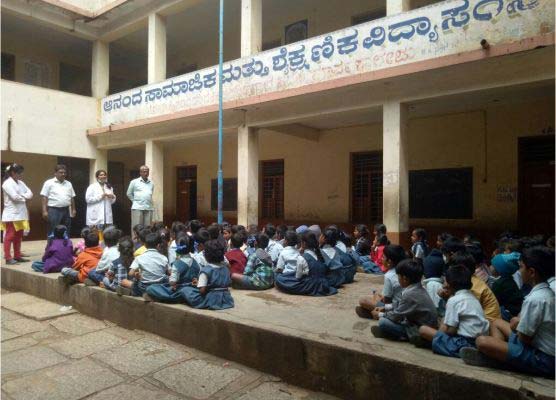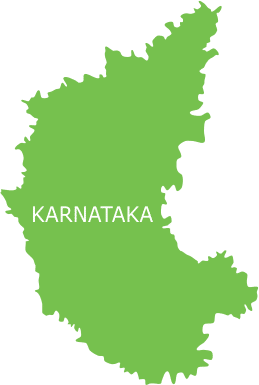Over the last two decades, Bangalore has witnessed rapid industrialisation resulting in improved infrastructure and booming technology sector. The growth has created vast wealth for many, but it has also exposed India’s IT capital to migration of people from different parts of Karnataka and other states resulting in increase in the number of slums as well in the city. According to reports, more than 2 million people of Bangalore, who constitute a quarter of its total population of 8.4 million, live in slums primarily due to their poor socio-economic conditions. Most of these slum residents are engaged in construction work or informal labour to make the ends meet.
Reportedly, the city has at least 600 slums and several other unaccounted squatter settlements. The inhuman conditions in these areas deny its residents their right to basic amenities, such as drinking water, sanitation, drainage system, toilets and garbage disposal. Unhygienic conditions, clubbed with overcrowding and poor ventilation, have made these slums a breeding ground for preventable and vector borne diseases like tuberculosis, diabetes, malaria and dengue. Lack of health-seeking behaviour and limited access to health facilities further makes it challenging for vulnerable communities, especially pregnant women and children, to lead a healthy life.

At Smile Foundation, we understand and believe that early detection and treatment can curb the spread of a disease and lead the underprivileged sections of the society towards healthy living. Hence, we have joined hands with Philips to bring primary healthcare services to over 10 slums in Bangalore including BK Nagar, Kempapura, Amruthahalli, Kodugehalli and Dasarahalli under the unique Smile on Wheels (SoW) programme. The primary aim of this intervention is to attend to the health of men, women and children residing in these slums, and provide a wide range of preventive, promotive and curative healthcare services at their doorstep.
To serve the purpose, a self-contained Mobile Hospital Unit is dispensed in the target areas with a team of medical experts and community mobilizers. The medical van has all the necessary lab equipment and other facilities to provide medical consultation, diagnosis and lab testing services to the beneficiaries along with free distribution of medicines. Street plays, health talks and other IEC activities are conducted to sensitise slum dwellers on the essence of nutrition and general hygiene. Pregnant women, being the ‘high-risk’ group, are given special counselling antenatal and postnatal care, immunization, breastfeeding and family planning. Referral services are also provided to connect the underserved communities with the government.
The project will benefit at least 35,000 beneficiaries from 10 slum clusters in Bangalore, every year.
Regular OPDs are conducted every month to offer medical consultation, diagnosis, lab testing, and medicine distribution services.
Many IEC activities and school health programmes are organised on topics like Personal Hygiene, Nutrition and Family Planning to encourage health-seeking behaviour in men, women and children.
Awareness sessions are conducted to educate women on pregnancy and newborn care related issues like ANC/PNC, immunization and breastfeeding.
Referral services provided to patients in need of institutional care.


A total 76 OPDS organized

Total number of female beneficiaries was 1732

75 pathological tests were conducted so far.

A total of 2862 people benefited from the health care services provided